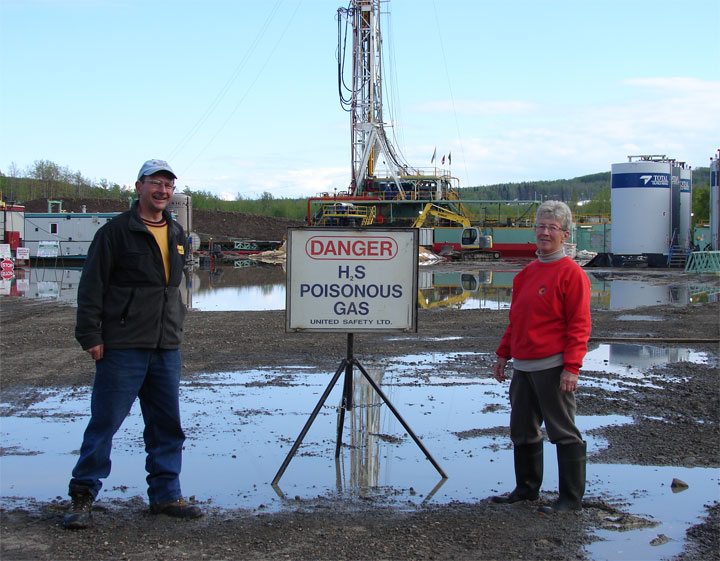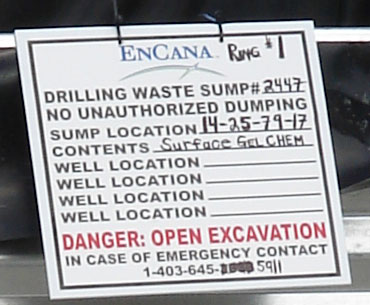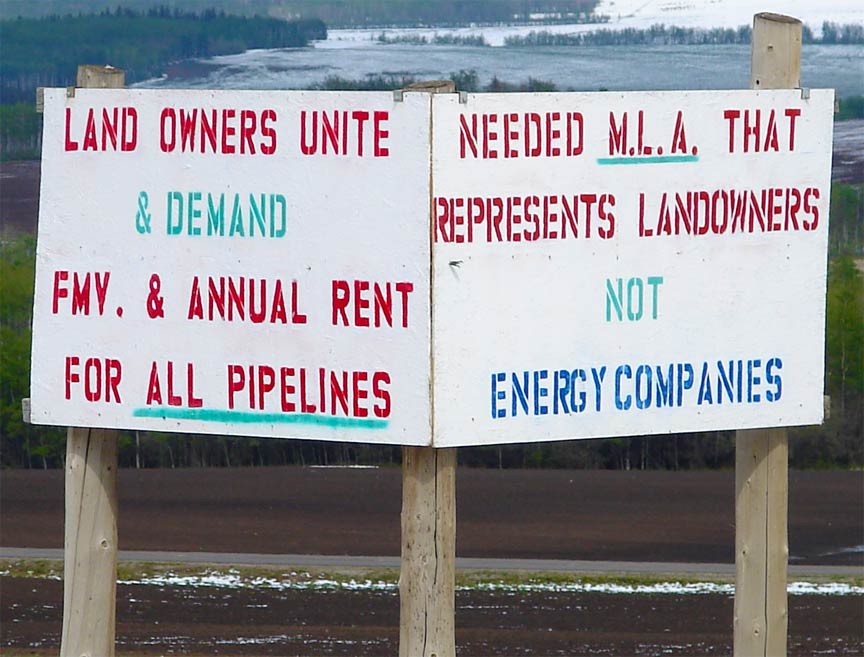 FRACKING FRACKINGBRITISH COLUMBIA |
ON TRUTH
Fracking Operations
into the Truth Zone
(Updated, April 19, 2011

(Encana drilling pad near Farmington, B.C.,
May 23, 2010)
 If investigators could tap
into all the 'gas' by the oil and
gas industry PR over the last few decades on the industry’s infractions
on
the
environment
by
way
of
the
industry’s
collective,
wholesale
conceit/deceit
on
hydraulic
fracturing,
they
could
make
billions.
If investigators could tap
into all the 'gas' by the oil and
gas industry PR over the last few decades on the industry’s infractions
on
the
environment
by
way
of
the
industry’s
collective,
wholesale
conceit/deceit
on
hydraulic
fracturing,
they
could
make
billions.
Here, in

several
thousand
protected
federal
forest
land
sources
were
eventually
and
systematically
logged
to
line
the
pockets
of
the
industry.
Nothing
could
seemingly
stop
that
machine,
which
compromised
both
the
science
and
governments
that
once
defended
these
watersheds.
Now,
after their ruination, a number of
these drinking watersheds are re-protected.
In a March 5, 2010 news
article interview (Potential impact of banning hydraulic
fracking unknown, industry rep says, Georgia Straight), Canadian
Society
for Unconventional Gas vice-president Kevin Heffernan stated that
fracking has been practiced
in Canada since “the 1950s”, and was first used in the United States in
1947.
The big question is, if hydraulic fracturing, accompanied by the use of
toxic
chemicals and additives, has been happily proceeding on for about half
a century, with recent increased exploration and production momentum,
why has it taken so long for the issue to gain the prominence it is
only now
receiving, primarily in the
In a February 29, 2008 article in the
Calgary Herald, B.C.
Shale
Home
to
Huge
Gas
Reserve, Mike Dawson (president of the
Canadian Society for Unconventional Gas) stated in his salesman pitch:
" there could be more than one quadrillion cubic feet of natural gas in
shale rocks in Alberta and B.C., more than double the amount in coal
seams and more than 100 times greater than Canada's current
conventional gas reserves of about 60 trillion cubic feet." The
prospects for cumulative environmental impacts from this projection are
horrendous.
At its May 6, 2010 annual meeting of shareholders, Houston-Texas based
Apache Corp., with natural gas fracking tenures in B.C.'s northeast
energy zone, boasted that it had conducted the "World's Largest Frack
Job". In a report released on June 17 by the Tap Water Alliance, The World's Biggest
Experimental Frack Job!! (Fracking 24/7 ... Fracking All Night Long) -
A Dubious Honour for British Columbia - And, Water In-Frack-Tions at 2
Island Lake?, are details about the world's new precedent
setting operation and controversies about Apache and Encana's fresh
water source, 2 Island Lake, located about 80 kilometers north of Fort
Nelson.
As the United States’ public
and political representatives
wrestle with the oil and gas industry over this vexing question, in
2010 the BC
Tap
Water Alliance will help to ‘stimulate’ and support investigastions into the
history
and practice of fracking and related activities in British Columbia and
in Alberta.
On April 30, 2010, the BC Tap Water Alliance filed a written submission
to the BC Ministry of Environment concerning a new public process aimed
at a significantly revising of BC's Water Act, called the Water Act
Modernization process. In the submission, Water First: Seeking
the Ultimate Good of the Land, Its Creatures, and the Public,
is
a
small
section
devoted
to
the
issue
of
fracking
in
British
Columbia,
Oil and
Gas Industry Controversies Related to BC's Water Resources.